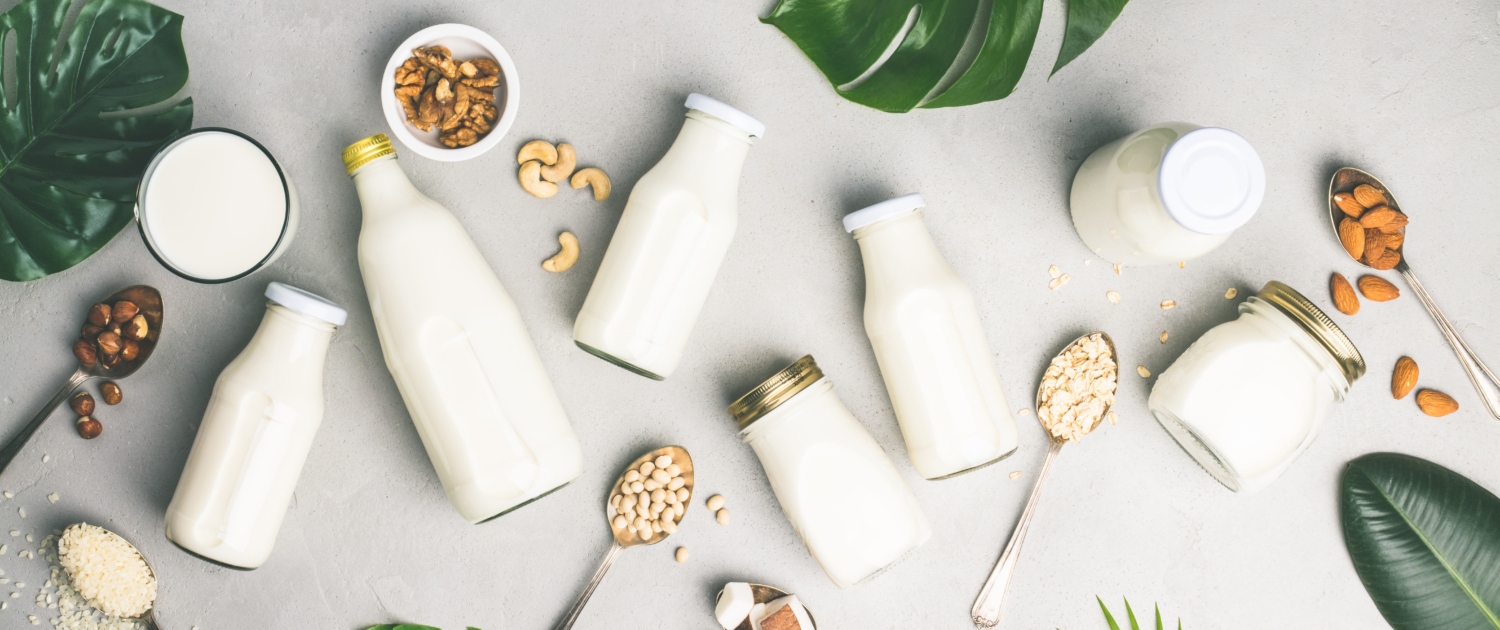Great Milk Alternatives For Coffee Drinkers
– Your 9 Best Nondairy Substitutes for Milk –
For many people, coffee and milk go hand in hand.
A great majority of coffee lovers cannot imagine their daily cup without some milk in it.
Typically, people are choosing regular cow’s milk then.
Cow’s milk, and many of its dairy products like yogurts, is considered a consistent daily part in many people’s diets.
Consumers drink it as a normal beverage, of course. Or, they might pour it on their cereals, add it to smoothies, tea or coffee.
While it may be popular and beneficial for many of us. Some people do not want or simply cannot choose to drink regular cow’s milk.
The decision might be due to personal reasons or dietary restrictions. Or, they might have some degree of allergies or intolerances, they need to be careful of.
It is best to avoid cow’s milk for these people then.
Fortunately, there are many great milk alternatives for coffee drinkers and people in general to choose from.
Here are the 9 best nondairy substitutes for milk.
Why do People Want to Substitute?
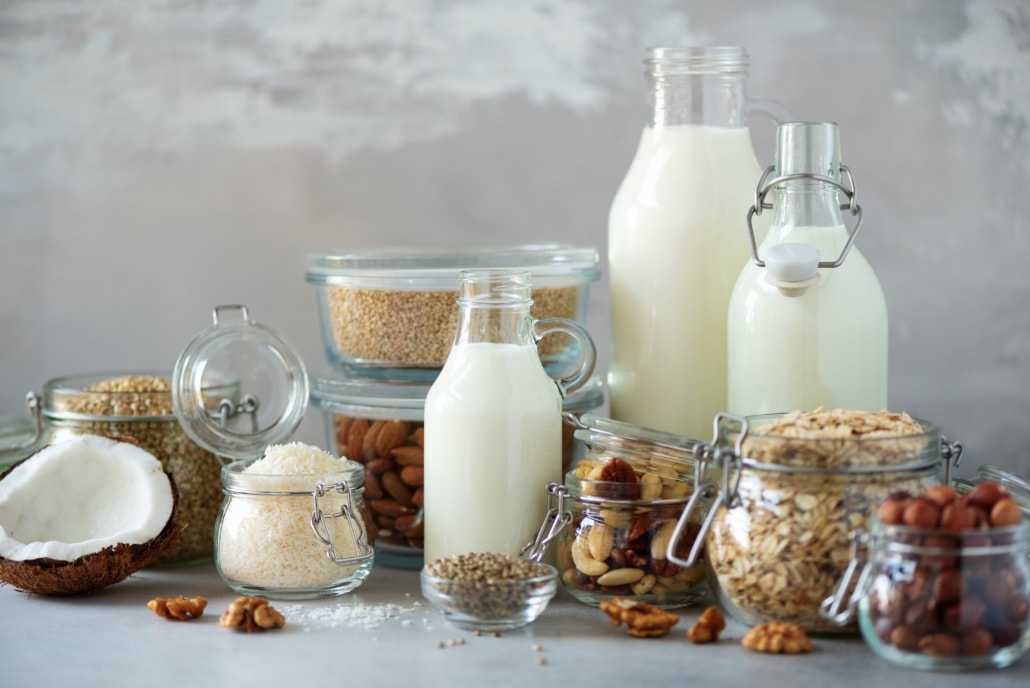
Overall, cow’s milk comes with an impressively rich nutrient profile.
It is rich in high-quality protein, important vitamins and minerals. For example, these include calcium, phosphorus and B vitamins.
In fact, one regular cup of milk (240 ml) alone already provides a lot of valuable nutrients.
To be exact, this would be 146 calories and 8 grams of fat. On top, there is an additional 8 grams of protein and 13 grams of carbohydrates.
However, not everyone considers cow’s milk to be a suitable option.
There are various reasons, why we might be looking for alternatives instead. The following points highlight the most common ones.
Reasons to Avoid Cow’s Milk
- Milk allergy
On average, 2 to 3% of children under the age of three are allergic to cow’s milk.
As a result, they might experience a range of symptoms. These may include rashes, vomiting and severe anaphylaxis.
Fortunately, around 80% of all kids will outgrow this allergy around the age of 16.
- Lactose intolerance
Approximately, 65% of the human population has a reduced ability to digest lactose. This means that these people have some degree of lactose intolerance.
Lactose is sugar found in milk and it is the main carbohydrate in dairy products.
It can lead to several symptoms. These may include bloating, diarrhea and abdominal cramps.
People with lactose intolerance have a deficiency in lactase. This is the enzyme that normally digests lactose.
- Dietary restrictions
Some people prefer not to consume any animal products.
This mostly happens out of ethical or health reasons. For example, vegans choose to exclude all products coming from animals, including cow’s milk.
- Potential health risks
Furthermore, some people deliberately decide to avoid cow’s milk due to concerns over potential contaminants.
These may include antibiotics, pesticides and hormones.
However, there is also some good news for any of our concerns. Namely, we can choose from many nondairy options available if we want or need to avoid cow’s milk.
Here are the most popular recommendations of great milk alternatives for you.
-
Soy Milk
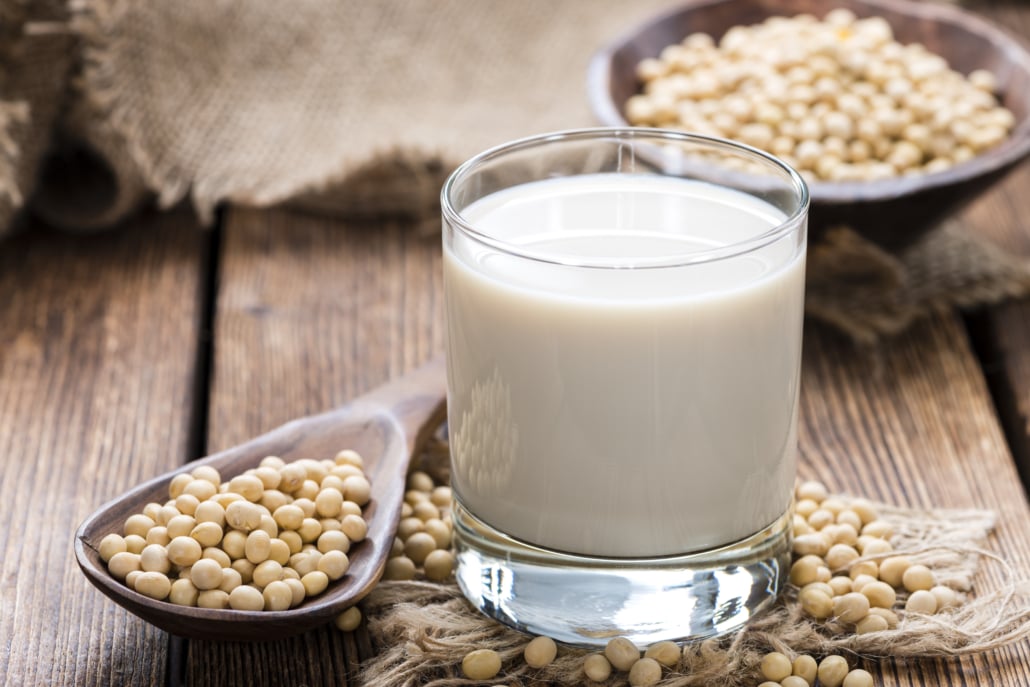
Typically, you are making soy milk with either soybeans or soy protein isolate.
Furthermore, soy milk often contains thickeners and vegetable oils as well. This is supposed to improve the overall taste and consistency.
The milk alternative normally has a mild and creamy flavor.
However, the exact taste profile may vary between brands. People find it best suitable as a substitute for cow’s milk in savory dishes, with coffee or on top of cereal.
That’s why soy milk is on our list of great milk alternatives for coffee drinkers.
One cup (240 ml) of unsweetened soy milk contains the following.
- 80 – 90 calories
- 4 – 4.5 grams of fat
- 7 – 9 grams of protein
- 4 grams of carbohydrates
In regards of nutrition, soy milk is a close nondairy substitute for cow’s milk.
Because, it contains about the same amount of protein. But at the same time, it has around half the number of calories, fats and carbohydrates.
Additionally, soy milk is also one of the few plant-based sources of high-quality ‘complete’ protein. This means that it is able to provide all of the essential amino acids our body needs.
Naturally, these amino acids cannot be produced by our body. Therefore, they must be consumed through food and diet instead.
What’s More to Know About Soy Milk?
During the recent years, soy has become one of the world’s most controversial foods. People are often concerned over its potential effects on the body.
This is mostly due to the quite large amount of isoflavones in soy. They can affect the estrogen receptors in our body. And, studies also show that they can affect the function of hormones as well.
However, the entire topic of soy potentially leading to any side effects is still widely debated. More research still needs to be done.
As of now, there is no conclusive evidence suggesting that moderate amounts of soy or soy milk are causing particular harm to otherwise healthy adults.
Therefore, as long as you limit your intake, you should be fine.
-
Almond Milk – Best Nondairy Substitutes for Milk
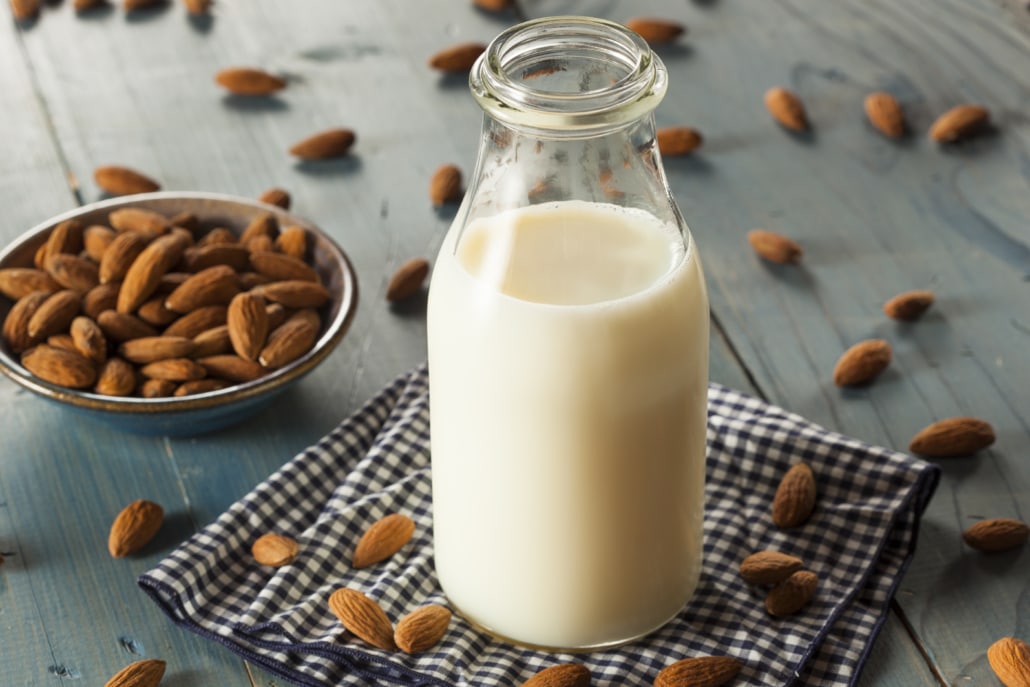
Normally, you are either making almond milk with whole almonds. Or, you are using almond butter and water instead.
Almond milk commonly has a light texture. And, it has a slightly sweet and nutty flavor.
One cup (240 ml) of unsweetened almond milk contains the following.
- 30 – 45 calories
- 5 grams of fat
- 1 gram of protein
- 1 – 2 grams of carbohydrates
People like to add it to coffee and tea. Therefore, almond milk is also another noteworthy option of great milk alternatives for coffee drinkers.
In addition, almond milk is a popular ingredient to mix smoothies. Furthermore, it is also often used as a substitute for cow’s milk in desserts and baked goods.
If you compare it to cow’s milk, it has less than a quarter of calories and less than half the fat. Almond milk is also significantly lower in protein and carbohydrates.
Overall, this alternative is one the lowest-calorie nondairy milks available.
It is especially a great option for people, who would like the decrease the usual number of calories they are consuming.
What’s More to Know About Almond Milk?
Naturally, almond milk is also a source of vitamin E. And, it contains a group of antioxidants. (internal link)They help to protect the body from disease-causing substances known as free radicals.
However, whole almond nuts are a much more concentrated source of any beneficial nutrients than almond milk. During the process of making almond milk, the amount of nutrients decreases.
For example, these beneficial nutrients include protein, fiber and healthy fats.
This is because almond milk is mostly made up with water. Quite surprisingly, many brands only contain 2% almonds in their products.
Furthermore, the used almonds are often blanched with their skin removed. Especially this processing step greatly reduces the number of fiber, vitamin and mineral content.
If you want to make most out of your almond milk. Try to benefit the most from any available nutrients and health benefits of almonds.
Choose almond milk brands that are serving a higher content of almonds. Ideally, the percentage should at least lay around 7 to 15%.
So, here is the summary.
Almond milk has a light, sweet and nutty flavor. And, it is low in calories, fat and carbohydrates.
But, on the downside, almond milk is low in protein and also contains phytic acid. This is a substance that limits the absorption of iron, zinc and calcium.
Nonetheless and overall, it is certainly one of the best nondairy substitutes for milk.
-
Coconut Milk – Great Milk Alternatives For Coffee Drinkers
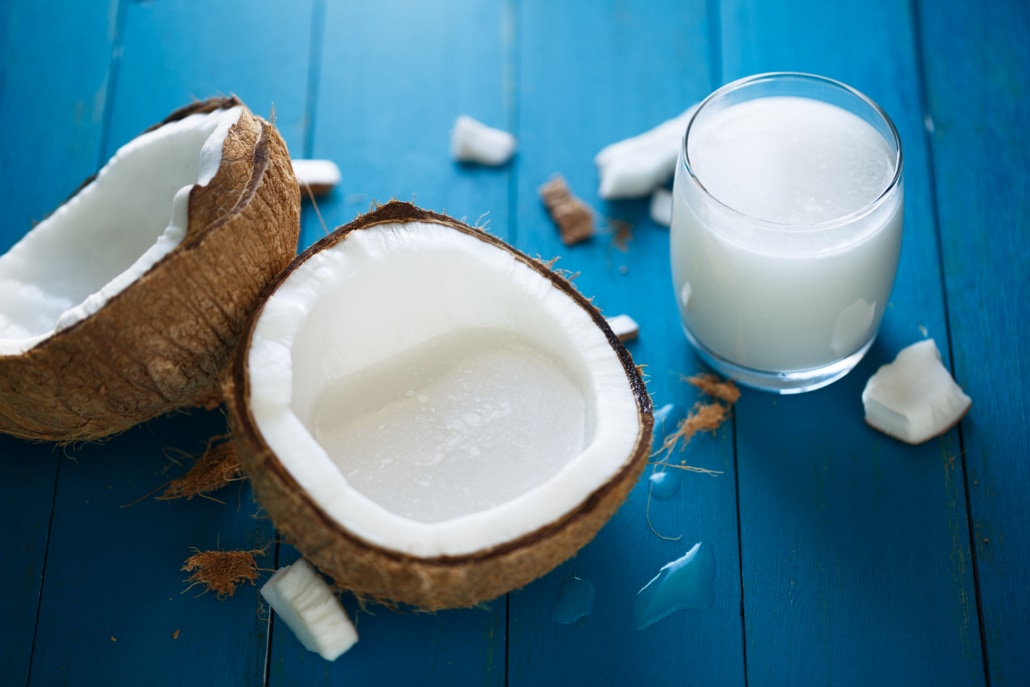
Typically, you are making coconut milk from water. And, from the white flesh of brown coconuts.
Many grocery shops usually offer it all around the world these days. Coconut milk commonly comes in similar carton drinking boxes alongside regular milk.
However, the carton’s coconut milk is usually a more diluted version. This is, if you would compare it to the type of coconut milk commonly used in Southeast Asian and Indian regions.
Here, coconut milk is more commonly sold in cans or bottles and with less water.
Since we, Siam Hills Coffee, are based in Thailand, we know all about 100% fresh coconut juice and its coconut milk, of course.
In general, coconut milk has a creamy texture. And, you can experience a sweet but subtle coconut flavor as well.
One cup (240 ml) of unsweetened coconut milk contains the following.
- 45 calories
- 4 grams of fat
- no protein
- almost no carbohydrates
On average, coconut milk contains one-third of calories compared to regular cow’s milk. Furthermore, it has around half of the fat and significantly less protein and carbohydrates.
In fact, the nondairy substitute has the lowest protein and carbohydrate content of all great milk alternatives.
Therefore, it may not necessarily be the best option for people for increased protein requirements.
But on the other hand, coconut milk is quite suitable for those looking to reduce their carb intake.
What’s More to Know About Coconut Milk?
Around 90% of the entire calories from coconut milk come from saturated fat. This also includes a type of saturated fat known as medium-chain triglycerides (MCTs).
Overall, there are some studies suggesting that MCTs may help reducing our appetite. As a result, the effect could help with weight loss.
In addition, it could also improve our blood cholesterol levels more than other fats.
On the other hand, other studies also highlight potential, more negative effects.
Coconut oil may raise levels of total and ‘bad’ low-density-lipoprotein (LDL) cholesterol. And this would be to a greater extent than unsaturated oils.
However, there still needs to be a lot more research to be done on coconut milk and its effects and benefits.
For now, it is maybe best to keep the same advice in mind.
Consuming a moderate amount of coconut milk as part of an overall healthy diet should not cause any health concern for anyone.
As it is with many things in our life. Some is good, but too much might bring trouble. The same can maybe be said about coconut milk.
-
Oat Milk
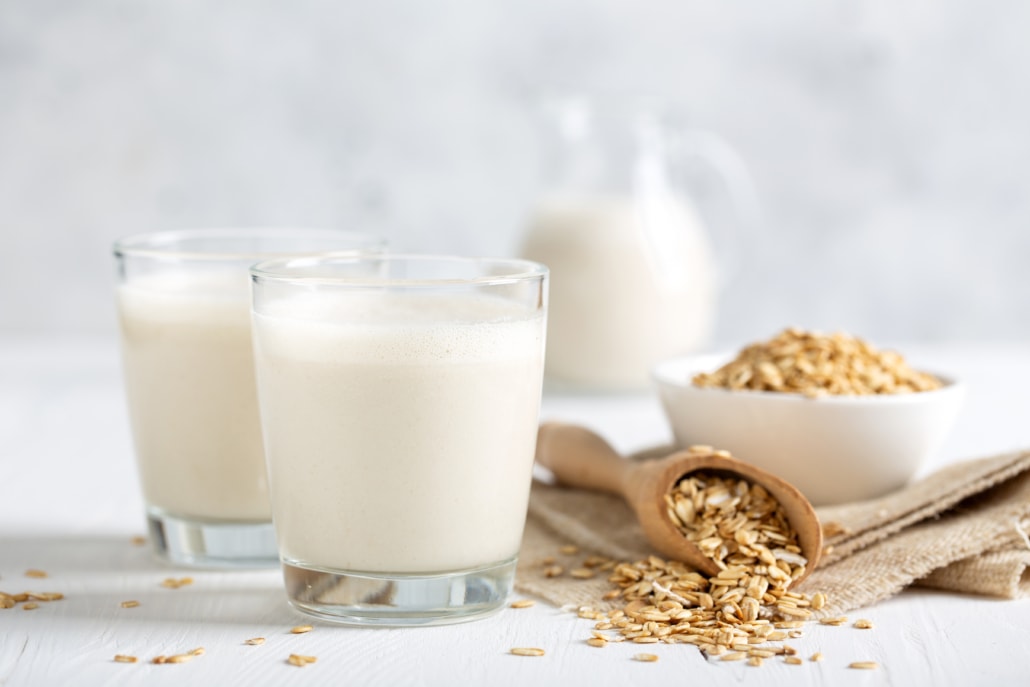
In its purest and simplest form, you just make oat milk from a mixture of oats and water.
However, commercial manufacturers often add extra ingredients. These ingredients may include gums and oils. Additionally, they also use salt to produce a desirable taste and texture.
Naturally, the oat milk’s flavor is sweet and mild.
In cooking, you can more or less use it the same way as cow’s milk. It also tastes great with cereal or in smoothies.
Many coffee lovers swear on oat milk as one of the best nondairy alternatives as well. That’s why oat milk has its well-deserved spot on our list of great milk alternatives for coffee drinkers.
One cup (240 ml) of unsweetened oat milk contains the following.
- 140 – 170 calories
- 5 – 5 grams of fat
- 5 – 5 grams of protein
- 19 – 29 grams of carbohydrates
Overall, oat milk contains a similar number of calories to regular cow’s milk.
Furthermore, it has up to double the number of carbohydrates. And, the nondairy substitute has about half the amount of protein and fat.
What’s More to Know About Oat Milk?
Interestingly, oat milk is also high in total fiber and beta-glucan. This is a type of soluble fiber. It forms a thick gel as it passes through our gut.
Moreover, the beta-glucan gel will then bind to cholesterol, reducing its absorption in the body.
As a result, it helps lowering our cholesterol levels, in particular the LDL cholesterol. LDL is commonly the type associated with increased risk of heart disease, for example.
There is one study on men showing some of the effects of oat milk. These men were consuming 25 ounces (750 ml) of oat milk daily for five weeks.
Results showed a lowered total cholesterol by 3% and LDL cholesterol by 5%.
Additionally, other studies show that beta-glucan is helping to increase a feeling of fullness. This may help with weight loss. And, it lowers blood sugar levels after a meal.
On top, oat milk is also relatively cheap.
Plus, you can also easily make it at home. If you do already, feel free to share your experience how this may work out for you.
-
Rice Milk
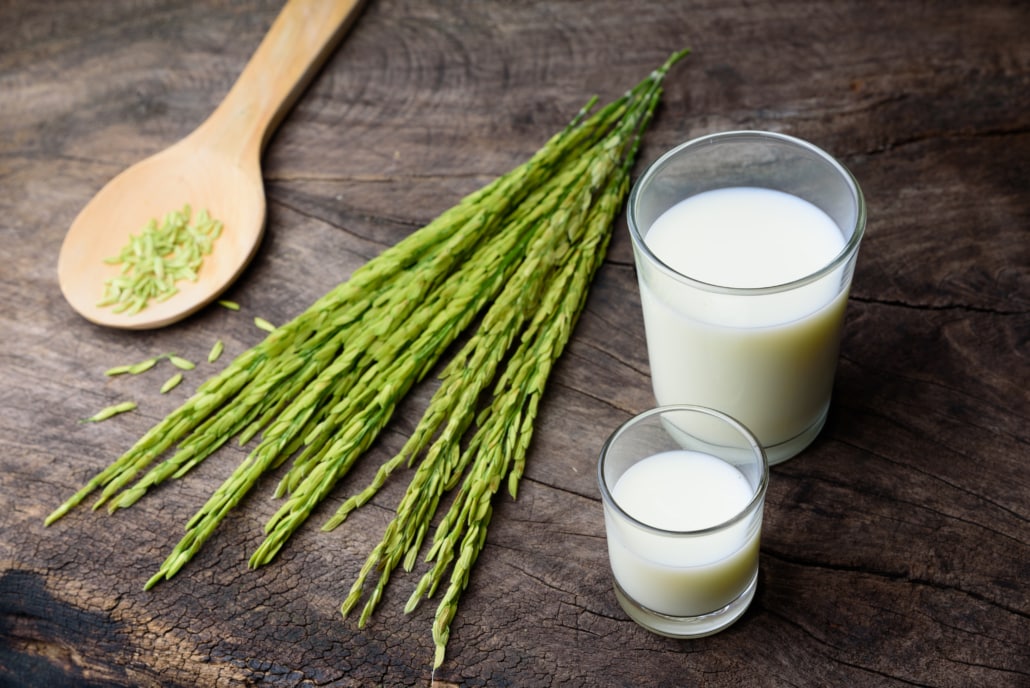
Typically, you are making rice milk from milled white or brown rice and water.
As it is the case for many of other best nondairy substitutes for milk. Rice milk also often contains thickeners as well. This is to improve its overall texture and taste.
Furthermore, rice milk is the least allergenic of all nondairy milk alternatives. Therefore, it is a safe option for people with allergies or intolerances to dairy, gluten, soy or nuts.
Rice milk is mild in taste. And, it is naturally sweet in flavor.
In addition, you will notice a slightly watery consistency. People like to drink rice milk on its own. Or, they like to mix it with smoothies, in desserts and with oatmeal.
One cup (240 ml) of unsweetened rice milk contains the following.
- 130 – 140 calories
- 2 – 3 grams of fat
- 1 gram of protein
- 27 – 38 grams of carbohydrates
Overall, rice milk is containing about the same number of calories than regular cow’s milk. But, it almost has the double amount of carbohydrates.
Moreover, this milk substitute has considerably less protein and fat.
Of all the great milk alternatives for coffee drinkers on this list, rice milk contains the most carbohydrates. In fact, it is around three times as many as the others.
What’s More to Know About Rice Milk?
Rice milk has a high glycemic index (GI) of 79-92.
This means that rice milk is absorbed quickly in the gut. And, it furthermore rapidly raises blood sugar levels. Therefore, rice milk may not be the best choice for people with diabetes.
Additionally, and due to its rather low protein content, rice milk is probably also not the best option for growing children, athletes and the elderly.
Commonly, these groups of people have higher protein requirements for an overall healthy lifestyle.
Rice milk also contains relatively high levels or inorganic arsenic. It is a toxic chemical, which can be naturally found in the environment.
Studies especially link long-term exposure to high levels of inorganic arsenic to an increased risk of various health problems. These may include certain types of cancers and heart disease.
Out of all these above reasons, health experts usually recommend a moderate consumption of rice milk.
People can consume rice as part of a balanced diet. Such diet should ideally include a variety of grains then. Only relying and rice and rice products is not recommended.
However, most people do not focus their entire diet on rice products only anyhow.
In general and for most people, drinking rice milk is not a cause for concern.
Just try to mix up your diet with a variety of grains. This can also include other nondairy milks. If you do so, you will be more than fine.
-
Cashew Milk – Great Milk Alternatives For Coffee Drinkers
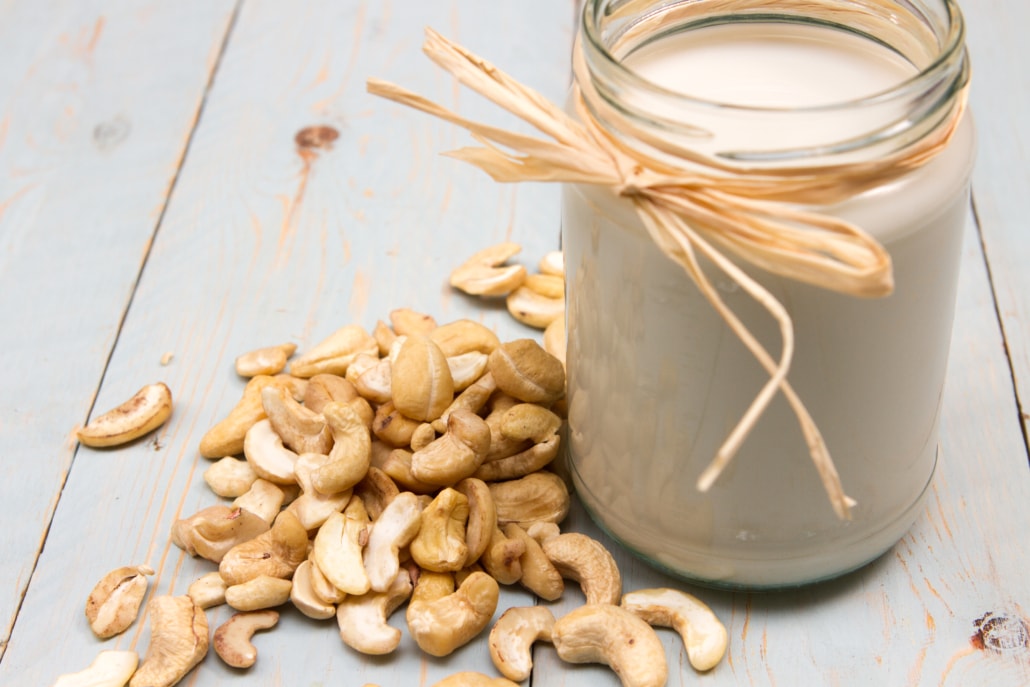
Here comes one of my most favorite milk substitutes.
People are making cashew milk from a mixture of cashew nuts or cashew butter and water.
Typically, it is rich and creamy. And, cashew milk commonly has a sweet and subtle nutty flavor.
Many people like to use it for thickening smoothies and as a creamer in coffee. Additionally, it’s also a great substitute for cow’s milk in desserts.
As it is the case for most of the nut-based milks. The nut’s pulp or outer skin layer will be removed before making the milk.
This unfortunately means that the majority of fiber, protein, vitamins and minerals from the whole cashew nut will be lost.
One cup (240 ml) of unsweetened cashew milk contains the following.
- 25 – 50 calories
- 2 – 4 grams of fat
- 0 – 1 gram of protein
- 1 – 2 grams of carbohydrates
Overall, cashew milk is containing fewer than one third of the calories of cow’s milk.
Furthermore, it typically has half the fat amount. And, cashew milk has significantly less protein and carbohydrates.
What’s More to Know About Cashew Milk?
Due to its low protein content, cashew milk may not be the best choice for people with increased protein requirements.
Consequently, any concerned people might be thinking of switching to a higher-protein milk alternative. These can either be soy or oat milk, for example.
On the other hand, cashew milk only has very few calories. Therefore, this milk substitute can become a great, low-calorie option for people looking interested in weight loss.
Cashew milk can help reducing your daily calorie intake. On top, the very low carbohydrate and sugar content supports in this matter as well.
In summary, it is a suitable option for those who need to monitor their carb intakes. This usually and especially applies to people with diabetes.
Last but not least, cashew milk is pretty easy to make at home.
Let us know if you have maybe tried yourself already.
-
Macadamia Milk
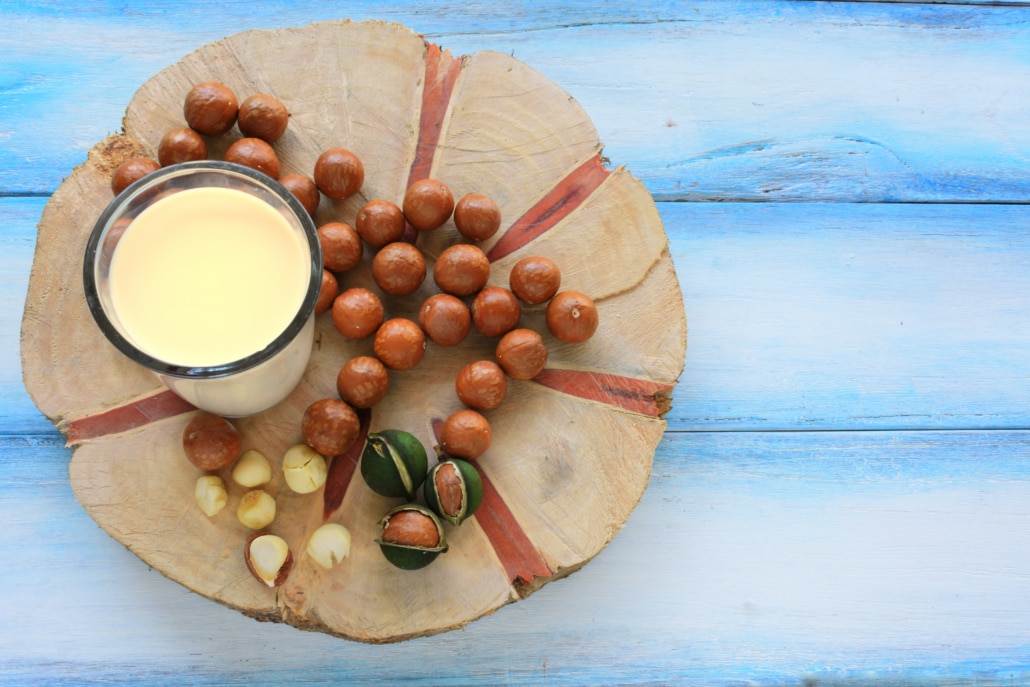
Typically, manufacturers make macadamia milk mostly with water and about 3% macadamia nuts.
The macadamia milk as a commercial product is still fairly new to the market. Most of the brands originate from Australia using Australian macadamias.
It has a richer, smoother and creamier flavor than most nondairy milks. And, it especially tastes great on its own or in coffee and smoothies.
That’s why macadamia milk also definitely needs to be on our list of great milk alternatives for coffee drinkers.
One cup (240 ml) of unsweetened cashew milk contains the following.
- 50 – 55 calories
- 5 – 5 grams of fat
- 1 – 5 grams of protein
- 1 gram of carbohydrates
Overall, macadamia milk contains about one third of the calories of cow’s milk. Furthermore, it has around half the fat amount. Macadamia milk is also lower in protein and carbohydrates.
What’s More to Know About Macadamia Milk?
This nondairy substitute is very low in calories. Consequently, macadamia milk is a great option for people who are trying to reduce their calorie intake.
In addition, macadamia milk is also a great source of healthy mono-unsaturated fats. An average cup of 240 ml will contain around 3.8 grams of this type of fat.
By increasing your intake of mono-unsaturated fats, you may help reduce blood cholesterol levels. On top, it may reduce blood pressure and the risk of heart disease.
This is especially the case if it replaces some of the saturated fats or carbohydrates in your overall diet.
As I said already, macadamia milk is still relatively new and unknown.
If you have not tried it yet, maybe you can give it a go. It’s really delicious and helps with weight loss.
-
Hemp Milk – Best Nondairy Substitutes for Milk
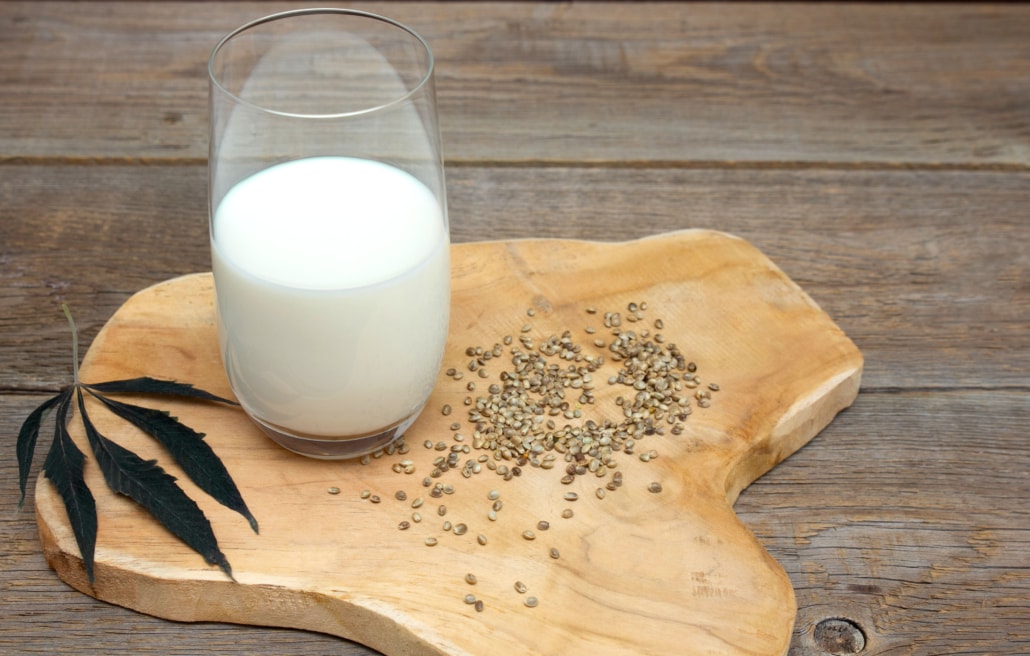
Of course, you are making hemp milk from the seeds of the hemp plant, Cannabis sativa.
You might probably know already, that this is the same plant species to make the drug cannabis. It is also commonly known as marijuana.
Although, unlike marijuana, the natural hemp seeds only contain minor amounts of tetrahydrocannabinol (THC). THC is the chemical responsible for marijuana’s mind-altering effects.
In general, hemp milk tends to be slightly sweet. It additionally has a nutty taste and a thin, watery texture.
People mostly recommend it as a good substitute for lighter milk types such as skim milk.
One cup (240 ml) of unsweetened hemp milk contains the following.
- 60 – 80 calories
- 5 – 8 grams of fat
- 2 – 3 grams of protein
- 0 – 1 gram of carbohydrates
Overall, hemp milk contains about the same amount of fat to cow’s milk. But, it has only around half the calories and protein.
Furthermore, the milk substitute also contains significantly fewer carbohydrates.
What’s More to Know About Hemp Milk?
This milk alternative might especially be a good option for vegans and vegetarians.
Because one glass of hemp milk alone, provides 2-3 grams of high quality, complete protein. You would get all the essential amino acids you would need.
In addition, hemp milk is also a great source of two essential fatty acids. These would be the omega-3 and the omega-6 fatty acid.
Naturally, our bodies are not about to make omega-3s and omega-6s. So, we essentially have to obtain them through our food. Hemp milk is a good source for it.
Lastly, hemp milk without any sweeteners is very low in carbohydrates. This also makes it a great option for people wanting to reduce their carb intake.
If this is a priority for yourself, you should really keep the following in mind maybe.
Any sweetened up milk variety can potentially contain up to 20 grams of carbs per cup (240 ml) through various additives s alone already.
-
Quinoa Milk
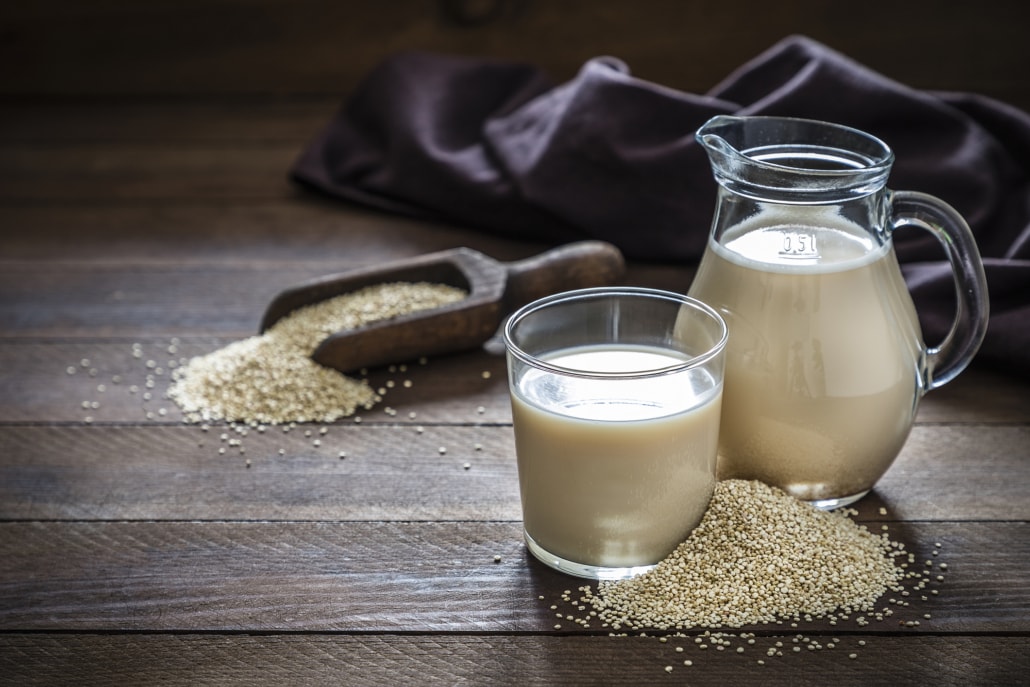
Typically, you are making quinoa milk from water and quinoa.
The quinoa seed is an edible seed. People are most commonly preparing and consuming it as a grain.
Quinoa seeds themselves have already become a very popular ‘superfood’ over recent years. However, the quinoa milk is still fairly new to the commercial market.
Due to its novelty on the market, quinoa milk is still relatively more expensive than the other best nondairy substitutes for milk.
And, it can also be a little harder to find quinoa milk in any of your regular, nearby grocery shops maybe.
The taste of quinoa milk is slightly sweet and nutty. On top, you would also experience the very typical and distinct quinoa flavor.
People mostly like to use it pouring onto cereal and in warm porridge.
One cup (240 ml) of unsweetened quinoa milk contains the following.
- 70 calories
- 1 gram of fat
- 2 grams of protein
- 12 grams of carbohydrates
Overall, quinoa milk contains about the similar amount of carbohydrates to regular cow’s milk.
But, it has fewer than half the calories. And, the milk alternative contains significantly less fat and protein.
What’s More to Know About Quinoa Milk?
In general, the quinoa milk is mostly made up of water and only around 5 – 10% quinoa.
As a result, most of the natural content of fiber, vitamins and minerals of quinoa are diluted and lost.
Nonetheless, quinoa milk has a fairly well-balanced nutrition profile compared to other nondairy milks.
For instance, it is comparatively low in fat. And, quinoa milk has a rather moderate amount of protein, calories and carbs.
This makes it a good plant-based source of complete protein for vegetarians and vegans.
If it is available at your supermarket, go ahead and give it a try maybe.
What do I Need to Know When Substituting Cow’s Milk?
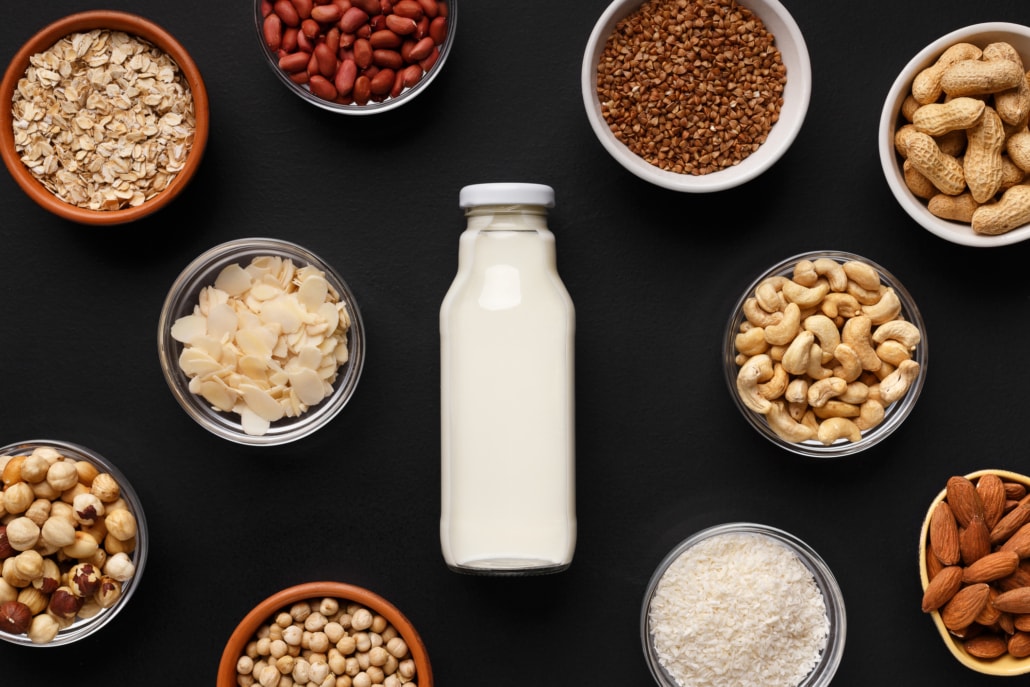
As you have just learned, there is a great variety of nondairy milk alternatives available we can choose from.
Sometimes, it can become confusing or difficult to say which one is maybe best for you.
To help you a bit, here are a few important points you may want to consider.
-
Added Sugar
Often, sugar is being added to enhance the flavor and texture of food products.
For a better and healthier diet, you may want to stick with unsweetened milk varieties over flavored ones.
Try to avoid brands that list sugar as one the first three ingredients.
-
Calcium Content
Naturally, regular cow’s milk is rich in calcium.
Calcium is quite vital for healthy bones. And, it is preventing osteoporosis, for example.
Most of the nondairy milk products are mostly fortified with calcium. This means, that it had been added as extra ingredient.
Try to choose one that at least contains 120 mg of calcium per 3.4 ounces (100ml).
-
Vitamin B12
Naturally, you can find vitamin B12 in animal products.
It is quite essential for a healthy brain and immune system.
If you are limiting or avoiding animal products from your overall diet. You might want to choose a milk alternative that is fortified with B12.
-
Cost
In general nondairy substitutes for milk are more expensive than cow’s milk.
You can try to cut some costs though. Many plant-based milk alternatives can be made at home.
However, if you are making your own milk, it will miss the two important ingredients we just mentioned before. Your own milk will most likely not contain enough calcium and vitamin B12.
-
Additives
There are some nondairy milk products that may contain additives.
These can include carrageenan and vegetable gums. Commonly, this is to achieve a thick and smooth texture.
In general, these additives are not necessarily unhealthy. However, some people prefer to be aware of them and like to avoid them.
-
Dietary Needs
Some people may have certain allergies or intolerances to specific ingredients used in plant-based milks.
These may include gluten, nuts and soy.
Please make sure to carefully check product labels, if you have an allergy or intolerance.
Final Thoughts – Great Milk Alternatives For Coffee Drinkers
Many of us use regular cow’s milk on an almost daily basis.
Either on its own or in combination with many dairy products, cow’s milk is usually a dietary staple in many people’s lives.

However, there are also various reasons why people would want to choose differently.
These reasons may include allergies, ethical reasons, or concerns over potential health risks.
Fortunately, there are many great alternatives for coffee drinkers and other consumers to choose from.
This article shared the supposedly 9 best nondairy substitutes for milk with you.
Whatever you may choose, please try to keep a few things in mind.
For instance, you might want to stick with unsweetened varieties. In addition, it is maybe better to avoid added sugars.
And, try to go with nondairy milk that also contains calcium and vitamin B12 as well.
Of course, there is no real right or wrong choice here. It all depends on us and our own preferences. Eventually, it all comes down to taste, nutrition and cost.
These milk alternatives and products can vary considerably. So, maybe, we just take the time we need to find the best one for us.
How about you?
Which nondairy substitute do you possibly prefer the most and why? Are you using any of these for you coffee as well?
In your opinion, what are the great milk alternatives for coffee drinkers?
Feel free to share your milk and coffee experiences with us.
Until then, stay healthy, safe and properly caffeinated.
Cheers!
Related Posts
 https://www.siamhillscoffee.com/wp-content/uploads/What-is-Caffeine-–-Is-it-Good-or-Bad-for-Your-Health-–-1.jpg
1414
2121
Siamhillscoffee
https://www.siamhillscoffee.com/wp-content/uploads/coffee-logo.png
Siamhillscoffee2021-04-25 11:19:442021-04-25 11:19:44What is Caffeine? – Is it Good or Bad for Your Health –
https://www.siamhillscoffee.com/wp-content/uploads/What-is-Caffeine-–-Is-it-Good-or-Bad-for-Your-Health-–-1.jpg
1414
2121
Siamhillscoffee
https://www.siamhillscoffee.com/wp-content/uploads/coffee-logo.png
Siamhillscoffee2021-04-25 11:19:442021-04-25 11:19:44What is Caffeine? – Is it Good or Bad for Your Health – https://www.siamhillscoffee.com/wp-content/uploads/How-Much-Caffeine-is-in-a-Cup-of-Coffee-All-You-Need-to-Know-–-1.jpg
1414
2121
Siamhillscoffee
https://www.siamhillscoffee.com/wp-content/uploads/coffee-logo.png
Siamhillscoffee2021-04-25 11:10:082021-04-25 11:10:08How Much Caffeine is in a Cup of Coffee – All You Need to Know –
https://www.siamhillscoffee.com/wp-content/uploads/How-Much-Caffeine-is-in-a-Cup-of-Coffee-All-You-Need-to-Know-–-1.jpg
1414
2121
Siamhillscoffee
https://www.siamhillscoffee.com/wp-content/uploads/coffee-logo.png
Siamhillscoffee2021-04-25 11:10:082021-04-25 11:10:08How Much Caffeine is in a Cup of Coffee – All You Need to Know – https://www.siamhillscoffee.com/wp-content/uploads/Coffee-and-Antioxidants-A-Complete-Overview-–-1.jpg
1413
2122
Siamhillscoffee
https://www.siamhillscoffee.com/wp-content/uploads/coffee-logo.png
Siamhillscoffee2021-03-14 03:52:072021-03-14 03:52:07Coffee and Antioxidants – A Complete Overview –
https://www.siamhillscoffee.com/wp-content/uploads/Coffee-and-Antioxidants-A-Complete-Overview-–-1.jpg
1413
2122
Siamhillscoffee
https://www.siamhillscoffee.com/wp-content/uploads/coffee-logo.png
Siamhillscoffee2021-03-14 03:52:072021-03-14 03:52:07Coffee and Antioxidants – A Complete Overview – https://www.siamhillscoffee.com/wp-content/uploads/Caffeine-Overdose-–-A-Review-on-How-Much-is-Too-Much-–-1.jpg
1414
2121
Siamhillscoffee
https://www.siamhillscoffee.com/wp-content/uploads/coffee-logo.png
Siamhillscoffee2021-03-14 03:44:312021-03-14 03:44:31Caffeine Overdose – A Review on How Much is Too Much –
https://www.siamhillscoffee.com/wp-content/uploads/Caffeine-Overdose-–-A-Review-on-How-Much-is-Too-Much-–-1.jpg
1414
2121
Siamhillscoffee
https://www.siamhillscoffee.com/wp-content/uploads/coffee-logo.png
Siamhillscoffee2021-03-14 03:44:312021-03-14 03:44:31Caffeine Overdose – A Review on How Much is Too Much – https://www.siamhillscoffee.com/wp-content/uploads/Lose-Weight-with-Coffee-–-Does-Coffee-Help-Burning-Fat-–-1.jpg
1412
2122
Siamhillscoffee
https://www.siamhillscoffee.com/wp-content/uploads/coffee-logo.png
Siamhillscoffee2021-03-14 03:34:242021-03-14 03:34:24Lose Weight with Coffee – Does Coffee Help Burning Fat? –
https://www.siamhillscoffee.com/wp-content/uploads/Lose-Weight-with-Coffee-–-Does-Coffee-Help-Burning-Fat-–-1.jpg
1412
2122
Siamhillscoffee
https://www.siamhillscoffee.com/wp-content/uploads/coffee-logo.png
Siamhillscoffee2021-03-14 03:34:242021-03-14 03:34:24Lose Weight with Coffee – Does Coffee Help Burning Fat? –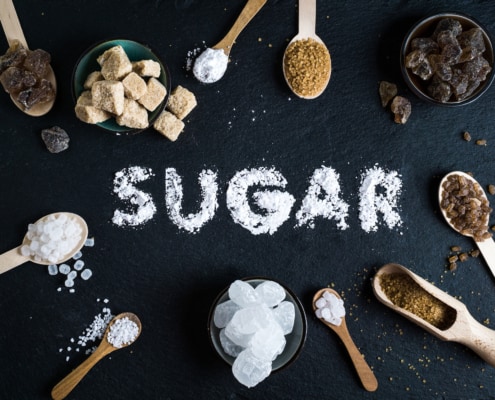 https://www.siamhillscoffee.com/wp-content/uploads/Natural-Coffee-Sweeteners-–-Best-Natural-Sugar-Substitutes-For-You-–-1.jpg
1502
1997
Siamhillscoffee
https://www.siamhillscoffee.com/wp-content/uploads/coffee-logo.png
Siamhillscoffee2021-02-20 05:43:182021-03-03 07:41:19Natural Coffee Sweeteners – Best Natural Sugar Substitutes For You –
https://www.siamhillscoffee.com/wp-content/uploads/Natural-Coffee-Sweeteners-–-Best-Natural-Sugar-Substitutes-For-You-–-1.jpg
1502
1997
Siamhillscoffee
https://www.siamhillscoffee.com/wp-content/uploads/coffee-logo.png
Siamhillscoffee2021-02-20 05:43:182021-03-03 07:41:19Natural Coffee Sweeteners – Best Natural Sugar Substitutes For You –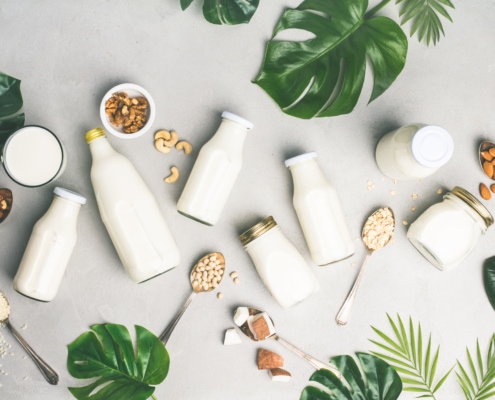 https://www.siamhillscoffee.com/wp-content/uploads/Great-Milk-Alternatives-–-Your-9-Best-Nondairy-Substitutes-for-Milk-–-1-scaled.jpg
1707
2560
Siamhillscoffee
https://www.siamhillscoffee.com/wp-content/uploads/coffee-logo.png
Siamhillscoffee2021-02-20 05:26:492021-03-03 10:47:18Great Milk Alternatives – Your 9 Best Nondairy Substitutes for Milk –
https://www.siamhillscoffee.com/wp-content/uploads/Great-Milk-Alternatives-–-Your-9-Best-Nondairy-Substitutes-for-Milk-–-1-scaled.jpg
1707
2560
Siamhillscoffee
https://www.siamhillscoffee.com/wp-content/uploads/coffee-logo.png
Siamhillscoffee2021-02-20 05:26:492021-03-03 10:47:18Great Milk Alternatives – Your 9 Best Nondairy Substitutes for Milk – https://www.siamhillscoffee.com/wp-content/uploads/Make-Your-Coffee-Healthy-–-Best-10-Ways-For-A-Better-Coffee-Experience-–-1.jpg
1414
2121
Siamhillscoffee
https://www.siamhillscoffee.com/wp-content/uploads/coffee-logo.png
Siamhillscoffee2021-02-12 08:13:182021-03-03 10:57:16Make Your Coffee Healthy – Best 10 Ways For A Better Coffee Experience –
https://www.siamhillscoffee.com/wp-content/uploads/Make-Your-Coffee-Healthy-–-Best-10-Ways-For-A-Better-Coffee-Experience-–-1.jpg
1414
2121
Siamhillscoffee
https://www.siamhillscoffee.com/wp-content/uploads/coffee-logo.png
Siamhillscoffee2021-02-12 08:13:182021-03-03 10:57:16Make Your Coffee Healthy – Best 10 Ways For A Better Coffee Experience – https://www.siamhillscoffee.com/wp-content/uploads/10-Best-Ways-to-Eat-Less-Sugar-–-How-to-Cut-Down-on-Sugar-–-1-scaled.jpg
1709
2560
Siamhillscoffee
https://www.siamhillscoffee.com/wp-content/uploads/coffee-logo.png
Siamhillscoffee2021-02-12 08:07:142021-03-03 10:58:4810 Best Ways to Eat Less Sugar – How to Cut Down on Sugar –
https://www.siamhillscoffee.com/wp-content/uploads/10-Best-Ways-to-Eat-Less-Sugar-–-How-to-Cut-Down-on-Sugar-–-1-scaled.jpg
1709
2560
Siamhillscoffee
https://www.siamhillscoffee.com/wp-content/uploads/coffee-logo.png
Siamhillscoffee2021-02-12 08:07:142021-03-03 10:58:4810 Best Ways to Eat Less Sugar – How to Cut Down on Sugar – https://www.siamhillscoffee.com/wp-content/uploads/Decaf-Coffee-–-Is-Decaffeinated-Coffee-Good-or-Bad-–-1.jpg
1415
2120
Siamhillscoffee
https://www.siamhillscoffee.com/wp-content/uploads/coffee-logo.png
Siamhillscoffee2021-02-12 07:57:572021-03-03 11:01:42Decaf Coffee – Is Decaffeinated Coffee Good or Bad? –
https://www.siamhillscoffee.com/wp-content/uploads/Decaf-Coffee-–-Is-Decaffeinated-Coffee-Good-or-Bad-–-1.jpg
1415
2120
Siamhillscoffee
https://www.siamhillscoffee.com/wp-content/uploads/coffee-logo.png
Siamhillscoffee2021-02-12 07:57:572021-03-03 11:01:42Decaf Coffee – Is Decaffeinated Coffee Good or Bad? – https://www.siamhillscoffee.com/wp-content/uploads/Coffee-Acidity-–-Everything-You-Need-to-Know-–-1-scaled.jpg
1707
2560
Siamhillscoffee
https://www.siamhillscoffee.com/wp-content/uploads/coffee-logo.png
Siamhillscoffee2021-02-12 07:52:442021-03-03 11:02:58Coffee Acidity – Everything You Need to Know –
https://www.siamhillscoffee.com/wp-content/uploads/Coffee-Acidity-–-Everything-You-Need-to-Know-–-1-scaled.jpg
1707
2560
Siamhillscoffee
https://www.siamhillscoffee.com/wp-content/uploads/coffee-logo.png
Siamhillscoffee2021-02-12 07:52:442021-03-03 11:02:58Coffee Acidity – Everything You Need to Know –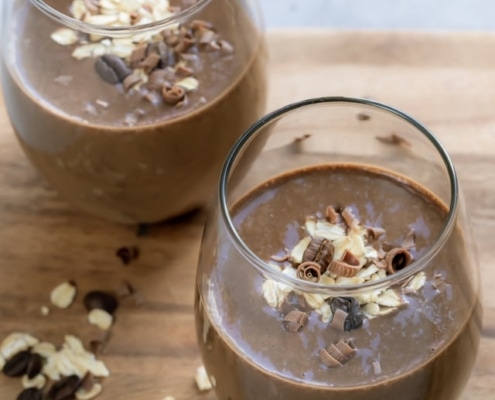 https://www.siamhillscoffee.com/wp-content/uploads/10-Best-Coffee-Protein-Shakes-–-Make-Your-Morning-Better-–-1.jpg
960
640
Siamhillscoffee
https://www.siamhillscoffee.com/wp-content/uploads/coffee-logo.png
Siamhillscoffee2021-02-12 07:48:282021-03-03 11:04:1910 Best Coffee Protein Shakes – Make Your Morning Better –
https://www.siamhillscoffee.com/wp-content/uploads/10-Best-Coffee-Protein-Shakes-–-Make-Your-Morning-Better-–-1.jpg
960
640
Siamhillscoffee
https://www.siamhillscoffee.com/wp-content/uploads/coffee-logo.png
Siamhillscoffee2021-02-12 07:48:282021-03-03 11:04:1910 Best Coffee Protein Shakes – Make Your Morning Better – https://www.siamhillscoffee.com/wp-content/uploads/We-Love-Coffee-–-10-Best-Reasons-Why-Coffee-is-Good-For-You-1-scaled.jpg
1707
2560
Siamhillscoffee
https://www.siamhillscoffee.com/wp-content/uploads/coffee-logo.png
Siamhillscoffee2021-02-12 07:43:082021-03-03 11:05:47We Love Coffee – 10 Best Reasons Why Coffee is Good For You –
https://www.siamhillscoffee.com/wp-content/uploads/We-Love-Coffee-–-10-Best-Reasons-Why-Coffee-is-Good-For-You-1-scaled.jpg
1707
2560
Siamhillscoffee
https://www.siamhillscoffee.com/wp-content/uploads/coffee-logo.png
Siamhillscoffee2021-02-12 07:43:082021-03-03 11:05:47We Love Coffee – 10 Best Reasons Why Coffee is Good For You – https://www.siamhillscoffee.com/wp-content/uploads/What-is-Chicory-Coffee-–-A-Healthy-Alternative-to-Coffee-or-Not-–-1-scaled.jpg
1747
2560
Siamhillscoffee
https://www.siamhillscoffee.com/wp-content/uploads/coffee-logo.png
Siamhillscoffee2021-02-12 07:37:062021-03-03 11:06:59What is Chicory Coffee? – A Healthy Alternative to Coffee or Not –
https://www.siamhillscoffee.com/wp-content/uploads/What-is-Chicory-Coffee-–-A-Healthy-Alternative-to-Coffee-or-Not-–-1-scaled.jpg
1747
2560
Siamhillscoffee
https://www.siamhillscoffee.com/wp-content/uploads/coffee-logo.png
Siamhillscoffee2021-02-12 07:37:062021-03-03 11:06:59What is Chicory Coffee? – A Healthy Alternative to Coffee or Not –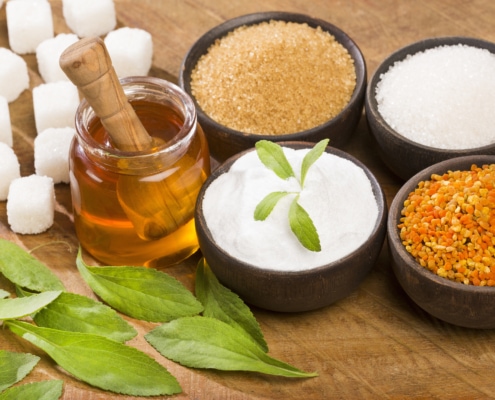 https://www.siamhillscoffee.com/wp-content/uploads/10-Best-Natural-Sugar-Substitutes-–-Your-Healthier-Sugar-Alternatives-to-Try-–-1-scaled.jpg
1707
2560
Siamhillscoffee
https://www.siamhillscoffee.com/wp-content/uploads/coffee-logo.png
Siamhillscoffee2021-02-12 07:32:372021-03-03 11:08:1810 Best Natural Sugar Substitutes – Your Healthier Sugar Alternatives to Try –
https://www.siamhillscoffee.com/wp-content/uploads/10-Best-Natural-Sugar-Substitutes-–-Your-Healthier-Sugar-Alternatives-to-Try-–-1-scaled.jpg
1707
2560
Siamhillscoffee
https://www.siamhillscoffee.com/wp-content/uploads/coffee-logo.png
Siamhillscoffee2021-02-12 07:32:372021-03-03 11:08:1810 Best Natural Sugar Substitutes – Your Healthier Sugar Alternatives to Try – https://www.siamhillscoffee.com/wp-content/uploads/Caffeine-Withdrawal-and-Headaches-–-7-Tips-for-Relief-and-More-–-1-scaled.jpg
1707
2560
Siamhillscoffee
https://www.siamhillscoffee.com/wp-content/uploads/coffee-logo.png
Siamhillscoffee2021-02-12 07:16:582021-03-03 11:12:51Caffeine Withdrawal and Headaches – 7 Tips for Relief and More –
https://www.siamhillscoffee.com/wp-content/uploads/Caffeine-Withdrawal-and-Headaches-–-7-Tips-for-Relief-and-More-–-1-scaled.jpg
1707
2560
Siamhillscoffee
https://www.siamhillscoffee.com/wp-content/uploads/coffee-logo.png
Siamhillscoffee2021-02-12 07:16:582021-03-03 11:12:51Caffeine Withdrawal and Headaches – 7 Tips for Relief and More – https://www.siamhillscoffee.com/wp-content/uploads/20-Best-Ground-Coffee-Recipes-9.jpg
896
640
Siamhillscoffee
https://www.siamhillscoffee.com/wp-content/uploads/coffee-logo.png
Siamhillscoffee2021-02-12 07:10:502021-03-03 11:14:2220 Best Ground Coffee Recipes – Make Delicious Food With Coffee –
https://www.siamhillscoffee.com/wp-content/uploads/20-Best-Ground-Coffee-Recipes-9.jpg
896
640
Siamhillscoffee
https://www.siamhillscoffee.com/wp-content/uploads/coffee-logo.png
Siamhillscoffee2021-02-12 07:10:502021-03-03 11:14:2220 Best Ground Coffee Recipes – Make Delicious Food With Coffee –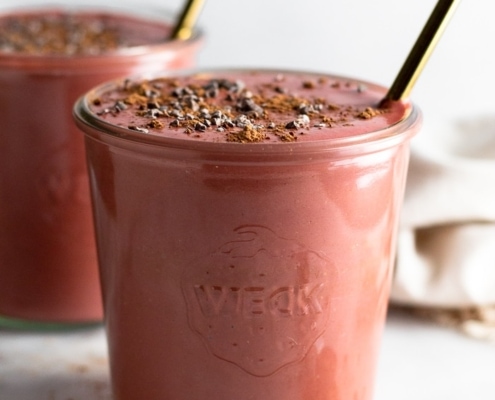 https://www.siamhillscoffee.com/wp-content/uploads/15-Great-Coffee-Breakfast-Smoothies-–-Simply-Delicious-Ways-to-Boost-Your-Morning-–14.jpg
1050
700
Siamhillscoffee
https://www.siamhillscoffee.com/wp-content/uploads/coffee-logo.png
Siamhillscoffee2021-02-12 06:52:492021-03-03 11:46:4615 Great Coffee Breakfast Smoothies – Delicious Ways to Boost Your Morning –
https://www.siamhillscoffee.com/wp-content/uploads/15-Great-Coffee-Breakfast-Smoothies-–-Simply-Delicious-Ways-to-Boost-Your-Morning-–14.jpg
1050
700
Siamhillscoffee
https://www.siamhillscoffee.com/wp-content/uploads/coffee-logo.png
Siamhillscoffee2021-02-12 06:52:492021-03-03 11:46:4615 Great Coffee Breakfast Smoothies – Delicious Ways to Boost Your Morning – https://www.siamhillscoffee.com/wp-content/uploads/Caffeine-Improves-Exercise-Performance-–-Does-Coffee-Make-Fit-–-1-scaled.jpg
1707
2560
Siamhillscoffee
https://www.siamhillscoffee.com/wp-content/uploads/coffee-logo.png
Siamhillscoffee2021-02-12 05:58:522021-03-03 11:49:58Caffeine Improves Exercise Performance – Does Coffee Make Fit? –
https://www.siamhillscoffee.com/wp-content/uploads/Caffeine-Improves-Exercise-Performance-–-Does-Coffee-Make-Fit-–-1-scaled.jpg
1707
2560
Siamhillscoffee
https://www.siamhillscoffee.com/wp-content/uploads/coffee-logo.png
Siamhillscoffee2021-02-12 05:58:522021-03-03 11:49:58Caffeine Improves Exercise Performance – Does Coffee Make Fit? – https://www.siamhillscoffee.com/wp-content/uploads/Is-Coffee-Addictive-–-A-Critical-Look-at-Coffee-and-Caffeine-–-1-scaled.jpg
1707
2560
Siamhillscoffee
https://www.siamhillscoffee.com/wp-content/uploads/coffee-logo.png
Siamhillscoffee2021-02-12 05:38:012021-03-03 11:55:00Is Coffee Addictive? – A Critical Look at Coffee and Caffeine –
https://www.siamhillscoffee.com/wp-content/uploads/Is-Coffee-Addictive-–-A-Critical-Look-at-Coffee-and-Caffeine-–-1-scaled.jpg
1707
2560
Siamhillscoffee
https://www.siamhillscoffee.com/wp-content/uploads/coffee-logo.png
Siamhillscoffee2021-02-12 05:38:012021-03-03 11:55:00Is Coffee Addictive? – A Critical Look at Coffee and Caffeine – https://www.siamhillscoffee.com/wp-content/uploads/Caffeine-and-Migraines-–-Does-Caffeine-Trigger-or-Treat-Migraines-–-2-scaled.jpg
1707
2560
Siamhillscoffee
https://www.siamhillscoffee.com/wp-content/uploads/coffee-logo.png
Siamhillscoffee2021-02-12 05:06:562021-03-03 12:03:40Caffeine and Migraines – Does Caffeine Trigger or Treat Migraines –
https://www.siamhillscoffee.com/wp-content/uploads/Caffeine-and-Migraines-–-Does-Caffeine-Trigger-or-Treat-Migraines-–-2-scaled.jpg
1707
2560
Siamhillscoffee
https://www.siamhillscoffee.com/wp-content/uploads/coffee-logo.png
Siamhillscoffee2021-02-12 05:06:562021-03-03 12:03:40Caffeine and Migraines – Does Caffeine Trigger or Treat Migraines – https://www.siamhillscoffee.com/wp-content/uploads/Caffeine-And-Your-Body-Everything-to-Know-About-Caffeine-Effects-–-2-scaled.jpg
1707
2560
Siamhillscoffee
https://www.siamhillscoffee.com/wp-content/uploads/coffee-logo.png
Siamhillscoffee2021-02-12 04:44:592021-03-03 12:09:01Caffeine And Your Body – Everything to Know About Caffeine Effects –
https://www.siamhillscoffee.com/wp-content/uploads/Caffeine-And-Your-Body-Everything-to-Know-About-Caffeine-Effects-–-2-scaled.jpg
1707
2560
Siamhillscoffee
https://www.siamhillscoffee.com/wp-content/uploads/coffee-logo.png
Siamhillscoffee2021-02-12 04:44:592021-03-03 12:09:01Caffeine And Your Body – Everything to Know About Caffeine Effects – https://www.siamhillscoffee.com/wp-content/uploads/How-To-Open-A-Coffee-Shop-The-10-Most-Important-Steps-1-scaled.jpg
1708
2560
Siamhillscoffee
https://www.siamhillscoffee.com/wp-content/uploads/coffee-logo.png
Siamhillscoffee2021-02-12 04:37:232021-03-03 12:10:33How To Open A Coffee Shop – The 10 Most Important Steps
https://www.siamhillscoffee.com/wp-content/uploads/How-To-Open-A-Coffee-Shop-The-10-Most-Important-Steps-1-scaled.jpg
1708
2560
Siamhillscoffee
https://www.siamhillscoffee.com/wp-content/uploads/coffee-logo.png
Siamhillscoffee2021-02-12 04:37:232021-03-03 12:10:33How To Open A Coffee Shop – The 10 Most Important Steps https://www.siamhillscoffee.com/wp-content/uploads/How-To-Sell-Coffee-Online-–-Open-Your-Own-Online-Coffee-Shop-1-scaled.jpg
1697
2560
Siamhillscoffee
https://www.siamhillscoffee.com/wp-content/uploads/coffee-logo.png
Siamhillscoffee2021-02-12 04:32:292021-03-03 12:12:06How To Sell Coffee Online – Open Your Own Online Coffee Shop
https://www.siamhillscoffee.com/wp-content/uploads/How-To-Sell-Coffee-Online-–-Open-Your-Own-Online-Coffee-Shop-1-scaled.jpg
1697
2560
Siamhillscoffee
https://www.siamhillscoffee.com/wp-content/uploads/coffee-logo.png
Siamhillscoffee2021-02-12 04:32:292021-03-03 12:12:06How To Sell Coffee Online – Open Your Own Online Coffee Shop https://www.siamhillscoffee.com/wp-content/uploads/Caffeine-and-Depression-Does-Caffeine-Help-with-Depression-–-1-scaled.jpg
1707
2560
Siamhillscoffee
https://www.siamhillscoffee.com/wp-content/uploads/coffee-logo.png
Siamhillscoffee2021-02-12 04:23:222021-03-03 12:13:42Caffeine and Depression – Does Caffeine Help with Depression? –
https://www.siamhillscoffee.com/wp-content/uploads/Caffeine-and-Depression-Does-Caffeine-Help-with-Depression-–-1-scaled.jpg
1707
2560
Siamhillscoffee
https://www.siamhillscoffee.com/wp-content/uploads/coffee-logo.png
Siamhillscoffee2021-02-12 04:23:222021-03-03 12:13:42Caffeine and Depression – Does Caffeine Help with Depression? – https://www.siamhillscoffee.com/wp-content/uploads/20-Best-Coffee-Dessert-Recipes-–-Your-Perfectly-Delicious-Coffee-Treat-–-1-scaled.jpg
1708
2560
Siamhillscoffee
https://www.siamhillscoffee.com/wp-content/uploads/coffee-logo.png
Siamhillscoffee2021-02-12 04:13:312021-03-03 12:17:1120 Best Coffee Dessert Recipes – Your Perfectly Delicious Coffee Treat –
https://www.siamhillscoffee.com/wp-content/uploads/20-Best-Coffee-Dessert-Recipes-–-Your-Perfectly-Delicious-Coffee-Treat-–-1-scaled.jpg
1708
2560
Siamhillscoffee
https://www.siamhillscoffee.com/wp-content/uploads/coffee-logo.png
Siamhillscoffee2021-02-12 04:13:312021-03-03 12:17:1120 Best Coffee Dessert Recipes – Your Perfectly Delicious Coffee Treat – https://www.siamhillscoffee.com/wp-content/uploads/Coffee-and-Caffeine-–-How-Much-Caffeine-is-Okay-for-You-–-1-scaled.jpg
1709
2560
Siamhillscoffee
https://www.siamhillscoffee.com/wp-content/uploads/coffee-logo.png
Siamhillscoffee2021-02-12 03:54:492021-03-03 12:25:58Coffee and Caffeine – How Much Caffeine is Okay for You? –
https://www.siamhillscoffee.com/wp-content/uploads/Coffee-and-Caffeine-–-How-Much-Caffeine-is-Okay-for-You-–-1-scaled.jpg
1709
2560
Siamhillscoffee
https://www.siamhillscoffee.com/wp-content/uploads/coffee-logo.png
Siamhillscoffee2021-02-12 03:54:492021-03-03 12:25:58Coffee and Caffeine – How Much Caffeine is Okay for You? – https://www.siamhillscoffee.com/wp-content/uploads/Make-Your-Coffee-Better-–-6-Fun-Ways-to-Boost-Your-Coffee-–-1-scaled.jpg
1709
2560
Siamhillscoffee
https://www.siamhillscoffee.com/wp-content/uploads/coffee-logo.png
Siamhillscoffee2021-02-12 03:45:112021-03-03 12:29:07Make Your Coffee Better – 6 Fun Ways to Boost Your Coffee –
https://www.siamhillscoffee.com/wp-content/uploads/Make-Your-Coffee-Better-–-6-Fun-Ways-to-Boost-Your-Coffee-–-1-scaled.jpg
1709
2560
Siamhillscoffee
https://www.siamhillscoffee.com/wp-content/uploads/coffee-logo.png
Siamhillscoffee2021-02-12 03:45:112021-03-03 12:29:07Make Your Coffee Better – 6 Fun Ways to Boost Your Coffee – https://www.siamhillscoffee.com/wp-content/uploads/Eating-Coffee-Beans-–-Yummy-Healthy-or-Stupid-–-1.jpg
1414
2121
Siamhillscoffee
https://www.siamhillscoffee.com/wp-content/uploads/coffee-logo.png
Siamhillscoffee2021-02-12 03:04:352021-03-03 12:37:32Eating Coffee Beans – Yummy, Healthy or Stupid –
https://www.siamhillscoffee.com/wp-content/uploads/Eating-Coffee-Beans-–-Yummy-Healthy-or-Stupid-–-1.jpg
1414
2121
Siamhillscoffee
https://www.siamhillscoffee.com/wp-content/uploads/coffee-logo.png
Siamhillscoffee2021-02-12 03:04:352021-03-03 12:37:32Eating Coffee Beans – Yummy, Healthy or Stupid – https://www.siamhillscoffee.com/wp-content/uploads/Caffeine-Side-Effects-–-10-Side-Effects-of-Too-Much-Caffeine-–-1.jpg
1414
2119
Siamhillscoffee
https://www.siamhillscoffee.com/wp-content/uploads/coffee-logo.png
Siamhillscoffee2021-02-12 02:58:352021-03-03 12:39:16Caffeine Side Effects – 10 Side Effects of Too Much Caffeine –
https://www.siamhillscoffee.com/wp-content/uploads/Caffeine-Side-Effects-–-10-Side-Effects-of-Too-Much-Caffeine-–-1.jpg
1414
2119
Siamhillscoffee
https://www.siamhillscoffee.com/wp-content/uploads/coffee-logo.png
Siamhillscoffee2021-02-12 02:58:352021-03-03 12:39:16Caffeine Side Effects – 10 Side Effects of Too Much Caffeine – https://www.siamhillscoffee.com/wp-content/uploads/A-Coffee-Journey-–-10-Steps-From-the-Seed-to-Your-Cup-–-1-scaled.jpg
1700
2560
Siamhillscoffee
https://www.siamhillscoffee.com/wp-content/uploads/coffee-logo.png
Siamhillscoffee2021-02-12 02:31:102021-02-20 14:09:30A Coffee Journey – 10 Steps From the Seed to Your Cup –
https://www.siamhillscoffee.com/wp-content/uploads/A-Coffee-Journey-–-10-Steps-From-the-Seed-to-Your-Cup-–-1-scaled.jpg
1700
2560
Siamhillscoffee
https://www.siamhillscoffee.com/wp-content/uploads/coffee-logo.png
Siamhillscoffee2021-02-12 02:31:102021-02-20 14:09:30A Coffee Journey – 10 Steps From the Seed to Your Cup – https://www.siamhillscoffee.com/wp-content/uploads/Coffee-Diet-–-Can-You-Really-Lose-Weight-With-Coffee-–-1-2-scaled.jpg
1708
2560
Siamhillscoffee
https://www.siamhillscoffee.com/wp-content/uploads/coffee-logo.png
Siamhillscoffee2021-02-12 02:07:232021-03-03 13:38:57Coffee Diet – Can You Really Lose Weight With Coffee? –
https://www.siamhillscoffee.com/wp-content/uploads/Coffee-Diet-–-Can-You-Really-Lose-Weight-With-Coffee-–-1-2-scaled.jpg
1708
2560
Siamhillscoffee
https://www.siamhillscoffee.com/wp-content/uploads/coffee-logo.png
Siamhillscoffee2021-02-12 02:07:232021-03-03 13:38:57Coffee Diet – Can You Really Lose Weight With Coffee? – https://www.siamhillscoffee.com/wp-content/uploads/10_reasons_to_drink_coffee_every_day.jpg
1414
2121
Siamhillscoffee
https://www.siamhillscoffee.com/wp-content/uploads/coffee-logo.png
Siamhillscoffee2019-11-05 07:26:292021-03-03 13:31:5310 Reasons to Drink Coffee Every Day
https://www.siamhillscoffee.com/wp-content/uploads/10_reasons_to_drink_coffee_every_day.jpg
1414
2121
Siamhillscoffee
https://www.siamhillscoffee.com/wp-content/uploads/coffee-logo.png
Siamhillscoffee2019-11-05 07:26:292021-03-03 13:31:5310 Reasons to Drink Coffee Every Day
